Lectin-Free Diet: Benefits, Risks, Foods To Eat & Avoid
Understand the science behind the lectin-free lifestyle before diving into it.
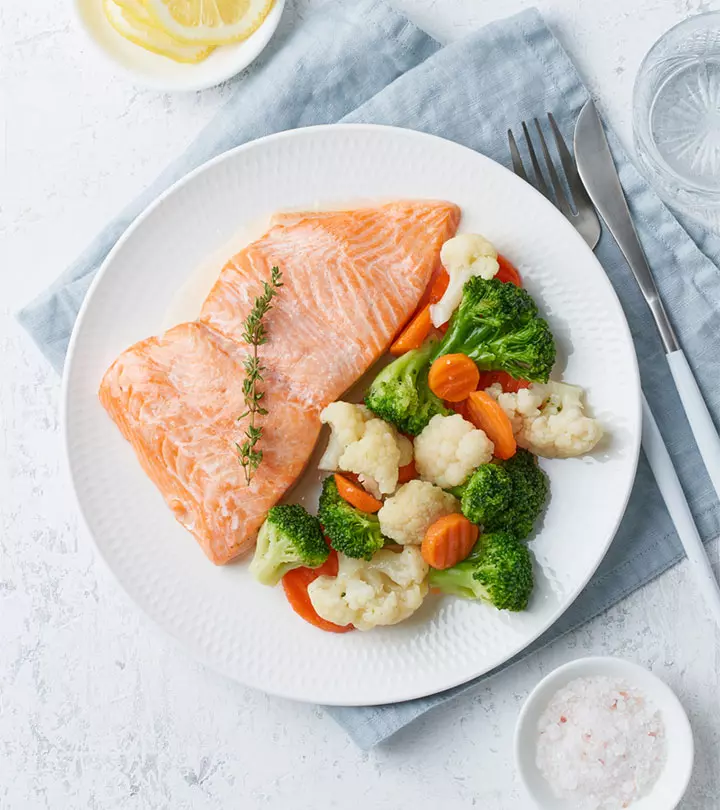
Image: Shutterstock
The lectin-free diet has gained considerable attention in recent years due to its potential health benefits. The dietary approach focuses on eliminating or reducing foods high in lectins that are believed to interfere with nutrient absorption and cause inflammation in the body, leading to various health issues.
Dr. Steven Gundry, a renowned cardiologist, is credited with popularizing this diet and bringing it to the spotlight with his book “The Plant Paradox.” In his book, Dr. Gundry presents compelling arguments for the role of lectins in the development of many modern ailments and advocates for minimizing their consumption to enhance overall health and well-being. This article explores everything you need to know about a lectin-free diet, foods to eat and avoid, risks, and related tips. Read on!
 At A Glance: Lectin-Free Diet
At A Glance: Lectin-Free Diet- Principle: To minimize or eliminate the intake of lectins, which are proteins found in various plant-based foods.
- Purpose: To reduce digestive issues and inflammation attributed to lectin consumption.
- Who It Is For: Individuals sensitive to lectins, people with digestive disorders and autoimmune conditions such as Crohn’s and Coeliac disease, and those seeking health improvements and weight loss.
- Duration: There are no strict guidelines for duration, allowing flexibility.
- Who Should Avoid: Children and pregnant individuals, vegetarians and vegans, and those without lectin sensitivity, specific health concerns, or nutrient deficiencies.
- Cons: May cause nutritional deficiencies, boredom, and fatigue and result in low fiber intake if not compensated elsewhere.
In This Article
What Are Lectins?
Lectins are a type of protein or glycoproteins found in various plant and animal foods. They are present in varying amounts in foods like legumes (beans, lentils, and peas), grains (especially wheat), nuts, seeds, and vegetables (1).
Lectins can bind to specific sugar molecules and play a role in plant defense mechanisms against predators (2). While lectins are primarily associated with plant foods, some animal-based foods, like seafood and poultry, can have trace amounts of lectins. Cooking, soaking, and fermenting foods can reduce lectin levels, making them safer to consume.
Lectins may, sometimes, cause digestive and other health issues. Scroll down to know whether lectins are good or bad for your health.
Key Takeaways
- The lectin-free diet eliminates lectin-rich foods, such as various plant-based foods, including legumes, grains, and nightshade vegetables.
- It may offer some benefits like improved digestion and reduced inflammation, but these claims lack robust scientific support, making the diet controversial in the nutrition community.
- It primarily focuses on consuming animal-based foods. However, the diet can be adopted by vegetarians or vegans, but it may require more effort to meet nutritional needs.
- Responses to the lectin-free diet vary widely among individuals, highlighting the importance of personalized approaches to nutrition and health.
- Eliminating lectin-containing foods may lead to nutrient deficiencies, so careful planning and consultation with a healthcare professional or dietitian are essential to ensure a balanced diet.
Are Lectins Good Or Bad For You?
While some lectins can interfere with digestion and nutrient absorption in the gut, causing discomfort or malabsorption in sensitive individuals, not all lectins have the same effects (2). Many lectin-containing foods, like legumes and whole grains, are rich in essential nutrients like vitamins, minerals, and fiber and have been consumed by humans for millennia.
The effects of lectins on health can vary from person to person. Hence, relying on a balanced diet ensures proper nutrition while minimizing potential adverse effects. Cooking, soaking, and fermenting foods may also reduce lectin content and make them safer for consumption (3). If you have specific dietary concerns related to lectins, consult a healthcare professional or registered dietitian for personalized guidance.
Eliminating foods high in lectins may result in the loss of their key advantages, including fiber, plant-based protein, and essential nutrients. For instance, beans and legumes are great providers of fiber and protein, and cutting them out may result in deficits. However, cutting back on lectins may help people with gastrointestinal disorders or sensitivities by promoting gut health and reducing bloating.
While substitutes such as rice, quinoa, and leafy greens can offer comparable benefits without lectins, they might not have the same amount of protein and fiber as legumes. Although these choices contain healthful nutrients, they might not have the same gut-regulating or heart-healthy effects as foods high in lectin. When converting to lectin-free substitutes, careful meal planning is required to keep a balanced diet.
Healthcare professionals have expressed concern regarding a lectin-free diet, as it eliminates multiple food groups. Let’s explore what this diet entails in the following section.
What Is The Lectin-Free Diet?
The lectin-free diet is an elimination diet that eliminates or restricts the intake of foods high in lectins like beans, peas, some nuts, and certain vegetables like tomatoes, eggplants, and peppers. The proponents of this diet claim that lectins can be harmful to human health and that avoiding or reducing the consumption of dietary lectins can benefit health by decreasing inflammation, supporting weight loss, and minimizing symptoms of various autoimmune and digestive disorders (4). However, it’s important to note that scientific evidence supporting these claims is limited and mixed, as the majority of lectin-containing foods are highly nutritious and beneficial for health. Moreover, the diet cannot be completely lectin-free, as all plants contain varying amounts of lectin, which adds to the confusion, leading to the belief that this is another fad diet.
 Trivia
TriviaIf you are considering the lectin-free diet, it’s essential to consult with a healthcare professional or registered dietitian for guidance. They will help you assess your individual dietary needs and make informed choices about which foods to include or avoid based on your specific health goals and conditions. Let’s uncover the benefits of this diet in the next section.
Benefits Of A Lectin-Free Diet

Some potential benefits attributed to a lectin-free diet include:
1. May Improve Digestion
People struggling with symptoms of irritable bowel syndrome (IBS) may benefit from a lectin-free diet. Certain foods, like legumes, contain FODMAPs, which trigger IBS symptoms. Some of these foods are also high in lectins (6). Therefore, eliminating them may possibly improve gut health.
2. May Reduce Inflammation
A study published in the Journal of Immunology found that plant lectins could trigger inflammatory responses in the body (7). Hence, a lectin-free diet may help the risk of inflammation in the body, potentially benefiting individuals with autoimmune conditions or chronic inflammatory disorders.
3. May Support Weight Loss
A lectin-free diet restricts the intake of processed food and promotes the intake of whole foods. As a result, this might reduce your total calorie intake, which is beneficial for people who are trying to manage or reduce their weight.
4. May Help Reduce Risk Of Diseases
A lectin-free diet restricts the intake of processed foods, which may potentially help prevent the risk of developing diseases like cardiovascular and gastrointestinal conditions, and type 2 diabetes (8).
5. May Reduce The Risk Of Allergies
For those with allergies or sensitivities to specific lectins present in food groups such as nightshade vegetables, avoiding these foods can help prevent allergic reactions or discomfort (9), (10).
In the following sections, let’s find out what you can eat and what you cannot as part of the lectin-free diet.
Foods To Eat On A Lectin-Free Diet

Here’s a list of foods that are usually considered acceptable on a lectin-free diet:
Vegetables
- Leafy greens (e.g., spinach, kale, and chard)
- Cruciferous vegetables (e.g., broccoli, cauliflower, and Brussels sprouts)
- Asparagus
- Celery
- Onions
- Garlic
- Leeks
- Artichokes
- Avocado
- Okra
Fruits (in moderation due to sugar content)
- Green bananas
- Olives
- Melons
- Certain berries (like blueberries, raspberries, strawberries)
Proteins
- Grass-fed and pasture-raised meats (e.g., beef, lamb, and pork)
- Free-range poultry
- Wild-caught fish (like salmon, sardines, and mackerel)
- Pasture-raised eggs
Fats
- Olive oil
- Avocado oil
- Coconut oil
- Ghee (clarified butter)
- Grass-fed butter (in moderation)
Nuts And Seeds
- Macadamia nuts
- Walnuts
- Pecans
- Hemp seeds
- Flax seeds
- Chia seeds
Grains
- Millet
- Sorghum
Others
- Coconut milk and unsweetened coconut products
- Lactose-free dairy products (in moderation and depending on individual tolerance)
- Herbs and spices (e.g., basil, oregano, thyme, turmeric, and rosemary)
- Dark chocolate (with high cocoa content and low sugar)
 Quick Tip
Quick TipLet’s check out the following section for a list of foods to avoid while on the lectin-free diet.
Foods To Avoid On A Lectin-Free Diet
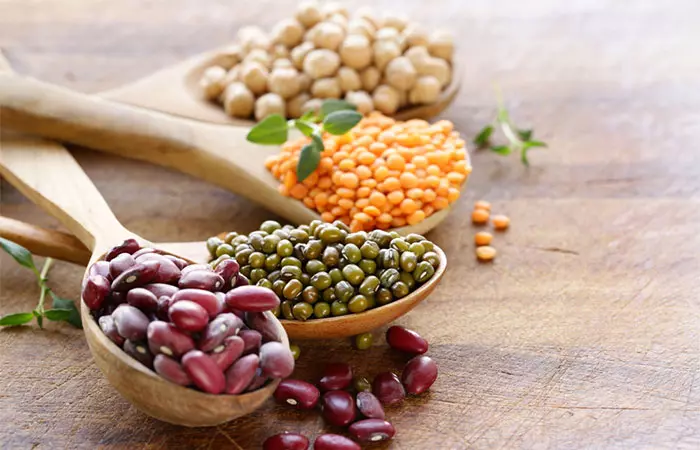
These are some of the foods you should restrict while on this diet:
Legumes
- Beans (e.g., kidney beans, black beans, and pinto beans)
- Lentils
- Peas (including split peas)
- Chickpeas (garbanzo beans)
- Soybeans and soy products (tofu, tempeh, and edamame)
Grains
- Wheat and wheat products (bread, pasta, and cereal)
- Barley
- Rye
- Quinoa
- Oats (unless certified gluten-free)
- Rice (especially brown rice)
- Corn and corn products
Nightshade Vegetables
- Tomatoes
- Potatoes
- Eggplants
- Bell peppers
- Chili peppers
Nuts And Seeds
- Peanuts (including peanut butter)
- Cashews
- Sunflower seeds
- Chia seeds
Dairy
- Most dairy products, especially milk and cheese
Others
- Certain seeds and grains used as food additives (e.g., guar gum, xanthan gum)
- Refined and processed oils (e.g., vegetable oils, hydrogenated fats)
- Grain-fed and conventionally-raised meats
- Farm-raised fish
 Quick Tip
Quick TipSo these are some foods high in lectins that you must avoid on a lectin-free diet. While some evidence suggests that reducing dietary lectins may help individuals, especially those with sensitivities or digestive issues, the lectin-free diet has its share of critics. Let’s check out the potential risks of this dietary approach in the following section!
Risks Of A Lectin-Free Diet

Common risks associated with the lectin-free diet include:
- Nutritional Deficiencies
Eliminating lectin-containing foods may result in a reduced intake of essential nutrients, including fiber, vitamins, minerals like iron and magnesium, and phytonutrients found in legumes, whole grains, and certain vegetables which are known to be beneficial to human health and disease prevention. - Limited Food Choices
The lectin-free diet restricts or eliminates some of the major food groups and a wide range of other food items, which can lead to a monotonous diet. - Cost And Accessibility
Some lectin-free diets emphasize having organic and specialty foods, which can be more expensive and less accessible for some individuals. - May Affect Gut Health
Foods rich in lectins, like legumes and whole grains, also provide dietary fiber, which promotes a healthy gut microbiome. A reduced intake of these foods can impact gut bacteria balance and affect digestion (6). - Cause Over-Reliance On Animal Products
Some individuals might turn to increased consumption of animal products when eliminating plant-based lectin sources, which may lead to a higher intake of saturated fats and cholesterol, affecting heart health (11). - Is Unsustainable
Due to its restrictive nature, some people may find it challenging to sustain a lectin-free diet in the long term, leading to frustration and potential dietary lapses.
Apart from these, following a lectin-free diet can be socially isolating and may require careful planning when dining out or attending social events. If you are considering the lectin-free diet, it’s necessary to approach it carefully and with a focus on maintaining a balanced and nutritious eating plan. Check out the following section for guidelines and tips for maintaining the diet!
Lectin-Free Diet Guidelines And Tips

Here are some guidelines and tips to help you get started:
- Familiarize yourself with the lectin-free food list to limit or eliminate foods high in lectins from your diet.
- Replace lectin-rich foods with lectin-free or lower-lectin alternatives. For example, opt for sweet potatoes or squash instead of white potatoes.
- Be sure to prepare lectin-containing foods properly by soaking, boiling, and fermenting them to make them more digestible and reduce lectin content.
- Incorporate lean sources of protein, like poultry, fish, and tofu in your diet. Avoid processed meats, which may contain added lectin-containing ingredients such as wheat or soy flour.
- Incorporate healthy fats from sources like olive oil, avocados, and nuts (in moderation) to gain essential nutrients and maintain satiety.
- Be mindful when reading food labels, as many processed and packaged foods may contain hidden sources of lectins or lectin-containing additives.
- Ensure that your meals are well-balanced and include a variety of foods to meet your nutritional needs.
- Pay attention to nutrient intake to avoid potential deficiencies. Consider working with a dietitian to plan a nutritionally adequate lectin-free diet.
- Drink plenty of water throughout the day to stay hydrated and support overall health.
- Pay attention to how your body responds to the diet. If you experience adverse effects or nutrient deficiencies, consult a healthcare professional to adjust your approach.
- Keep in mind that the lectin-free diet can be quite restrictive, and it’s okay to be flexible and allow occasional indulgences to maintain a balanced and enjoyable diet.
- Plan ahead and communicate your dietary preferences to accommodate your needs when dining out or attending social events.
Note:
For any diet where you eliminate food or food groups, it is always recommended that you seek professional medical and nutrition advice before following the diet.
The lectin-free diet has gained attention as a potential dietary approach to address digestive discomfort and inflammation for some individuals. While its proponents claim that the diet has various health benefits, it’s important to acknowledge the lack of robust scientific evidence supporting its widespread adoption. Moreover, the diet’s restrictions can pose challenges in maintaining a balanced and nutritious eating plan, often leading to nutrient deficiencies. Therefore, consult a healthcare professional or registered dietitian who can provide personalized guidance before you embark on a lectin-free diet. While the lectin-free diet may have merits for specific individuals, it’s essential to approach it with caution, prioritize overall nutrition, and remain open to evolving scientific research in the field of nutrition and health.
Frequently Asked Questions
How long should one follow a lectin-free diet to see results?
The time it takes to see results on a lectin-free diet varies among individuals, but many notice changes within a few weeks to a couple of months.
Can I follow a lectin-free diet as a vegetarian or vegan?
Following a strict lectin-free diet as a vegetarian or vegan can be challenging, as the diet eliminates many plant-based protein sources like legumes and certain grains. However, it is possible to adopt the diet with careful planning to ensure adequate plant-based protein intake. Consult a registered dietitian to get a customized plan to avoid the risk of nutritional deficiencies.
Are there any exceptions for children or pregnant individuals on a lectin-free diet?
Children and pregnant individuals should avoid this diet because it may limit essential nutrient intake. Consult a healthcare provider or dietitian before starting this diet to determine your suitability and understand safer ways to reduce lectin intake.
Can a lectin-free diet help with weight loss?
Some individuals may experience weight loss on a lectin-free diet, primarily due to the restriction of calorie-dense processed foods and lectin-rich foods like grains and legumes. However, the diet’s effectiveness for weight loss varies among individuals.
Can you eat tuna on a lectin-free diet?
You can eat tuna on a lectin-free diet, as it is a source of lean protein. However, one must avoid packaged tuna preparations that include lectin-rich ingredients or additives.
Can you eat pickles on a lectin-free diet?
Most traditional pickles, made through fermentation, are acceptable on a lectin-free diet, as fermentation usually reduces lectin content. However, you must read labels and avoid the ones with added lectin-containing ingredients.
Illustration: Lectin-Free Diet: Benefits Risks Foods To Eat & Avoid
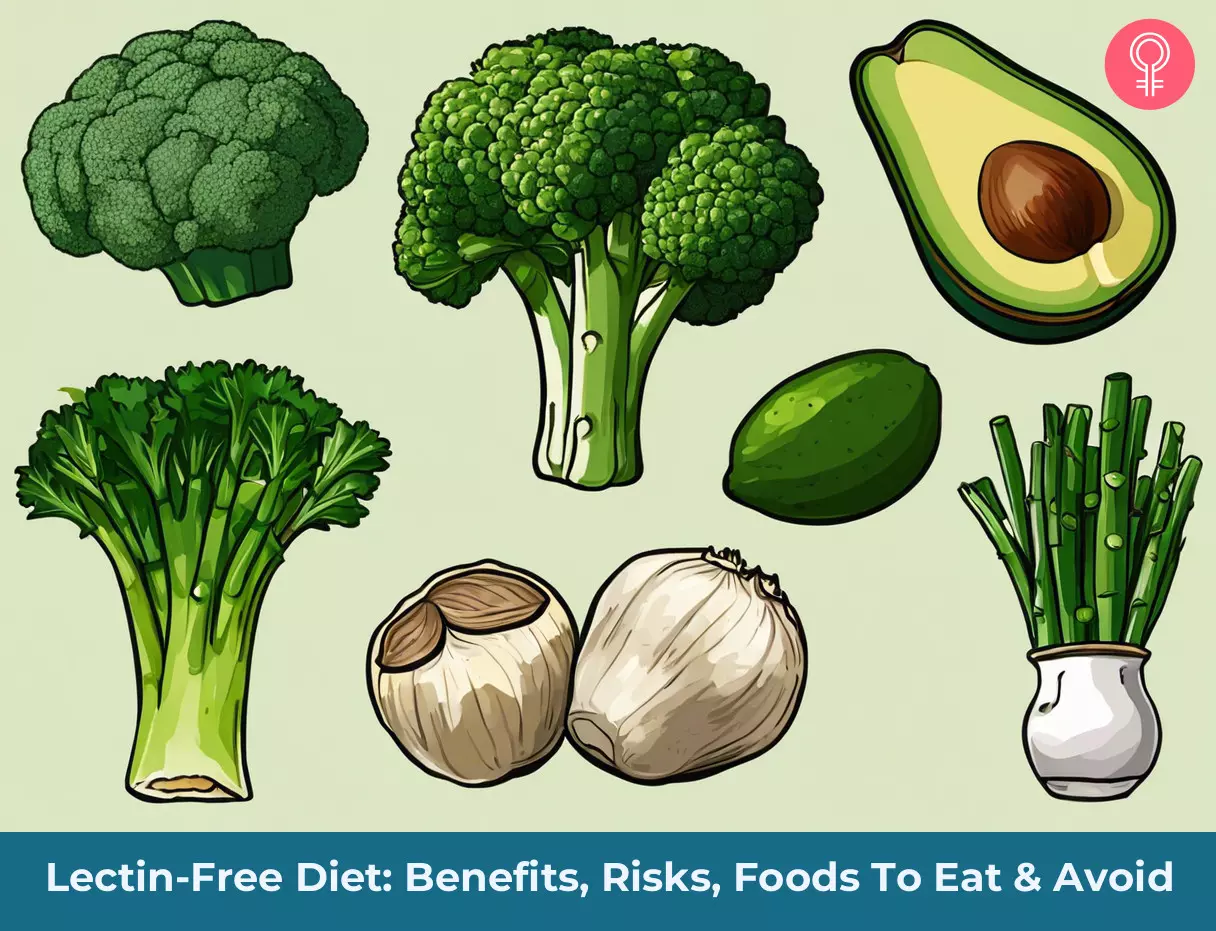
Image: Stable Diffusion/StyleCraze Design Team
Are you curious about the lectin-free food plan and how it might impact your health? Check out the video below to understand the ins and outs of the lectin-free diet and whether it’s suitable for you or not.
References
Articles on StyleCraze are backed by verified information from peer-reviewed and academic research papers, reputed organizations, research institutions, and medical associations to ensure accuracy and relevance. Read our editorial policy to learn more.
- 35 years in plant lectin research: a journey from basic science to applications in agriculture and medicine
https://www.ncbi.nlm.nih.gov/pmc/articles/PMC8383723/ - Lectin activity in commonly consumed plant-based foods: calling for method harmonization and risk assessment
https://www.mdpi.com/2304-8158/10/11/2796 - Is there such a thing as “anti-nutrients”? A narrative review of perceived problematic plant compounds
https://www.ncbi.nlm.nih.gov/pmc/articles/PMC7600777/ - Lectins agglutinins and their roles in autoimmune reactivities
https://www.researchgate.net/publication/271140311_Lectins_agglutinins_and_their_roles_in_autoimmune_reactivities - Plant food anti-nutritional factors and their reduction strategies: an overview
https://fppn.biomedcentral.com/articles/10.1186/s43014-020-0020-5 - Dietary lectin exclusion: the next big food trend?
https://www.ncbi.nlm.nih.gov/pmc/articles/PMC6603809/ - Plant lectins activate the NLRP3 inflammasome to promote inflammatory disorders
https://journals.aai.org/jimmunol/article/198/5/2082/102514/Plant-Lectins-Activate-the-NLRP3-Inflammasome-To - Consumption of ultra-processed foods and health outcomes: a systematic review of epidemiological studies
https://nutritionj.biomedcentral.com/articles/10.1186/s12937-020-00604-1 - Are dietary lectins relevant allergens in plant food allergy?
https://pubmed.ncbi.nlm.nih.gov/33255208/ - Lectin Activity in Commonly Consumed Plant-Based Foods: Calling for Method Harmonization and Risk Assessment
https://www.ncbi.nlm.nih.gov/pmc/articles/PMC8618113/ - A short history of saturated fat: the making and unmaking of a scientific consensus
https://www.ncbi.nlm.nih.gov/pmc/articles/PMC9794145/
Read full bio of Karin Littleton
Read full bio of Aparna Mallampalli
Read full bio of Ravi Teja Tadimalla
Read full bio of Sindhu Koganti






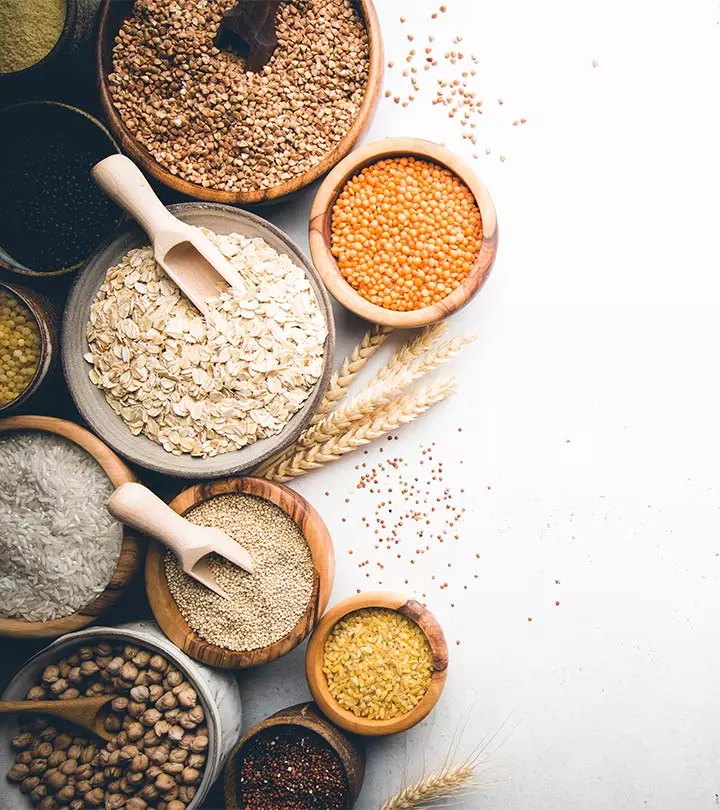
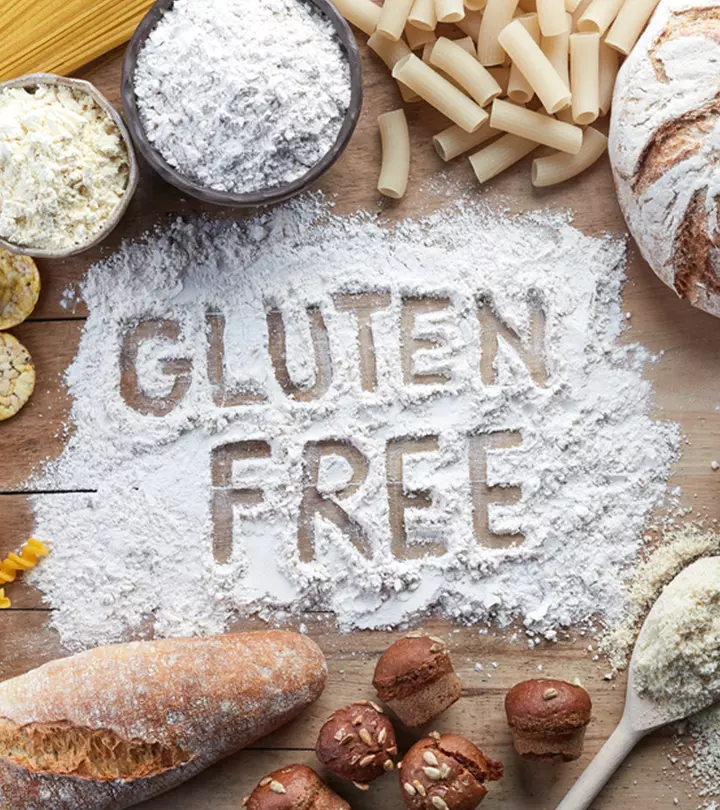
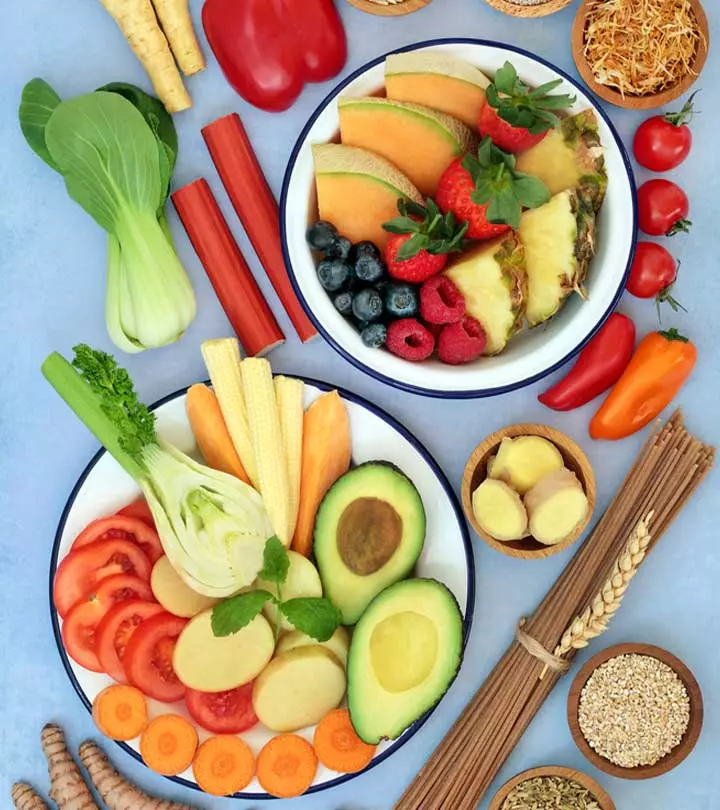
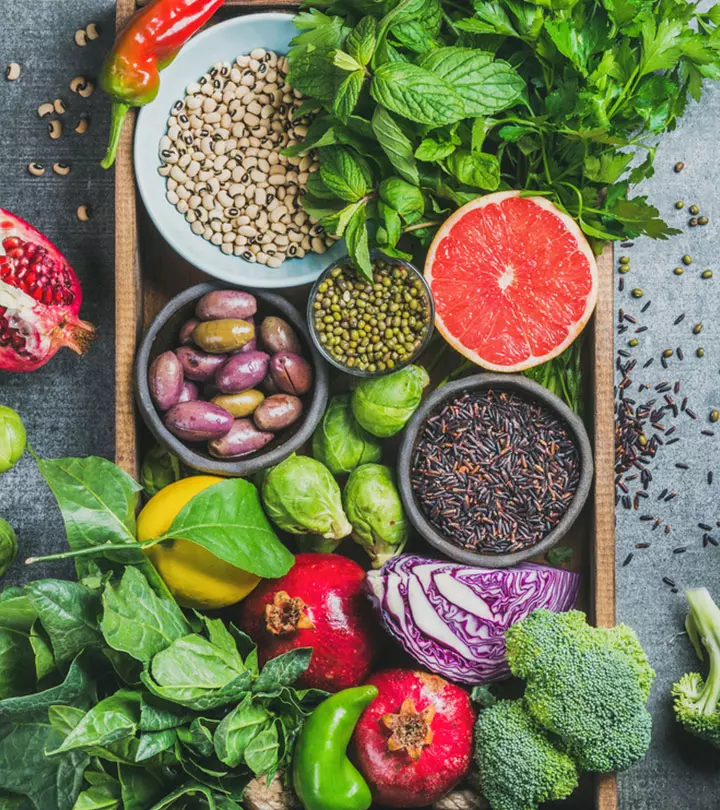


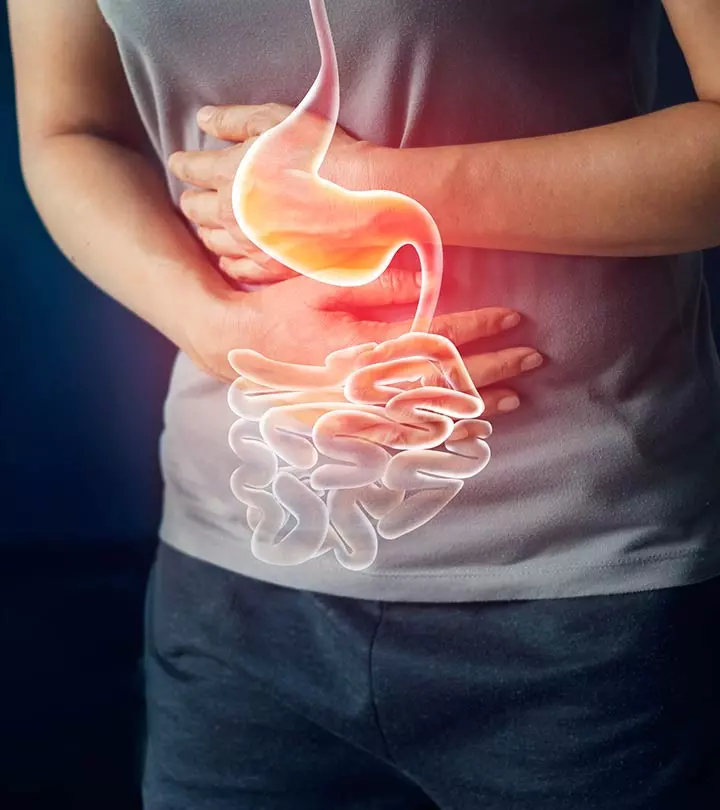
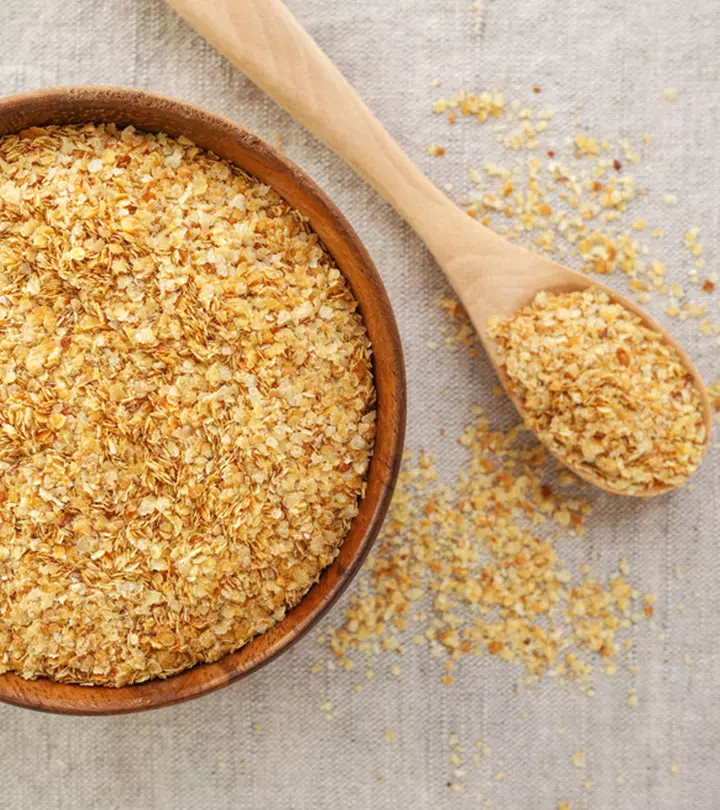
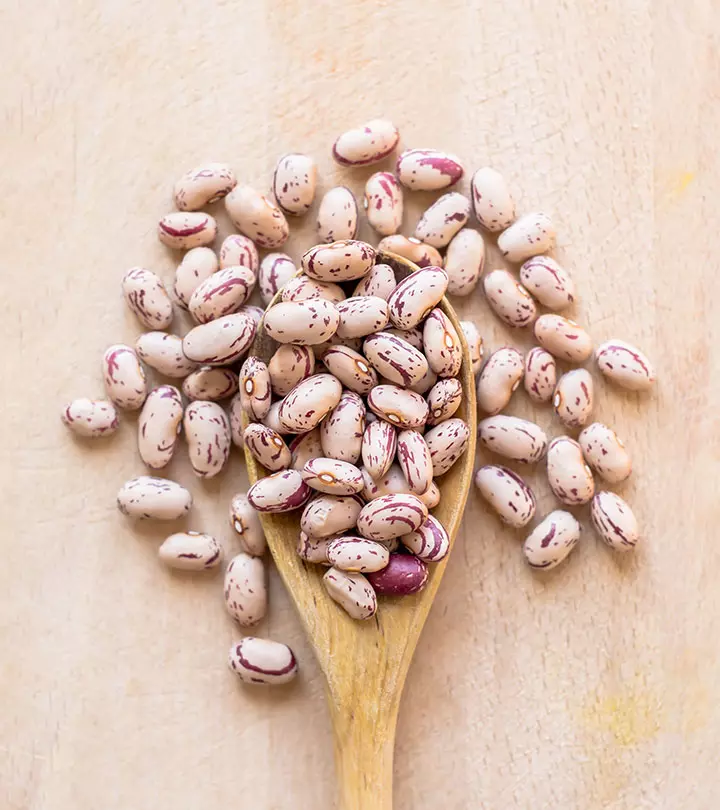
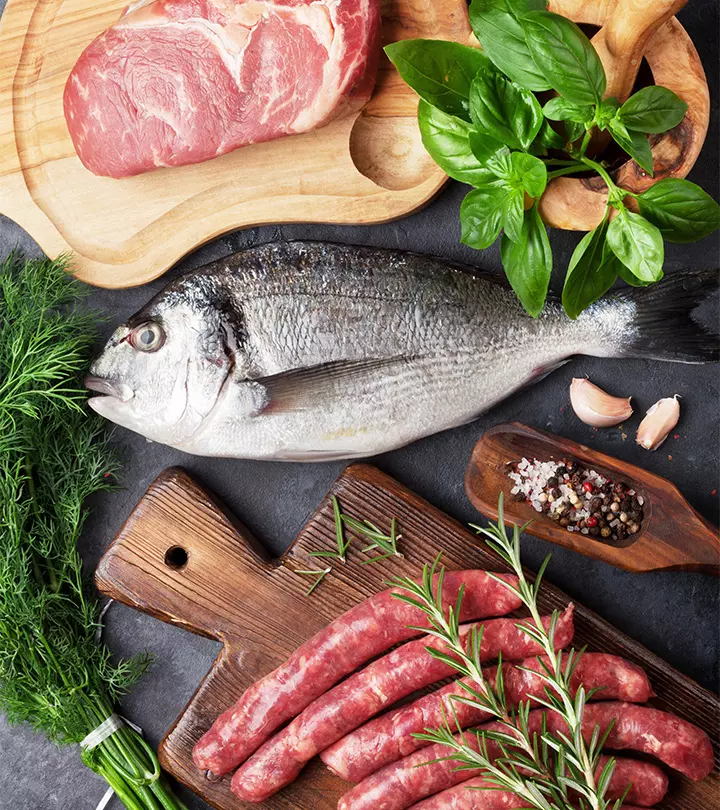


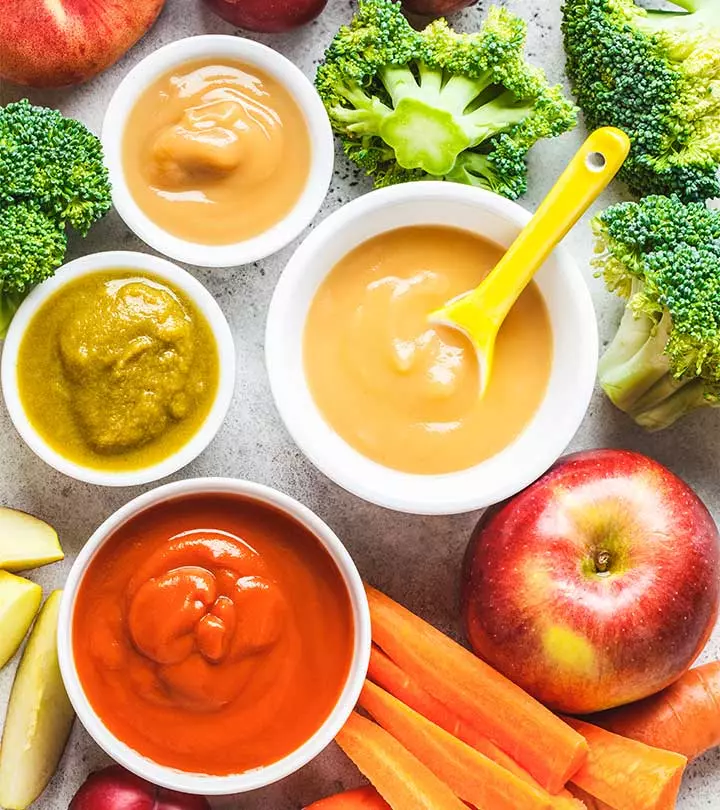
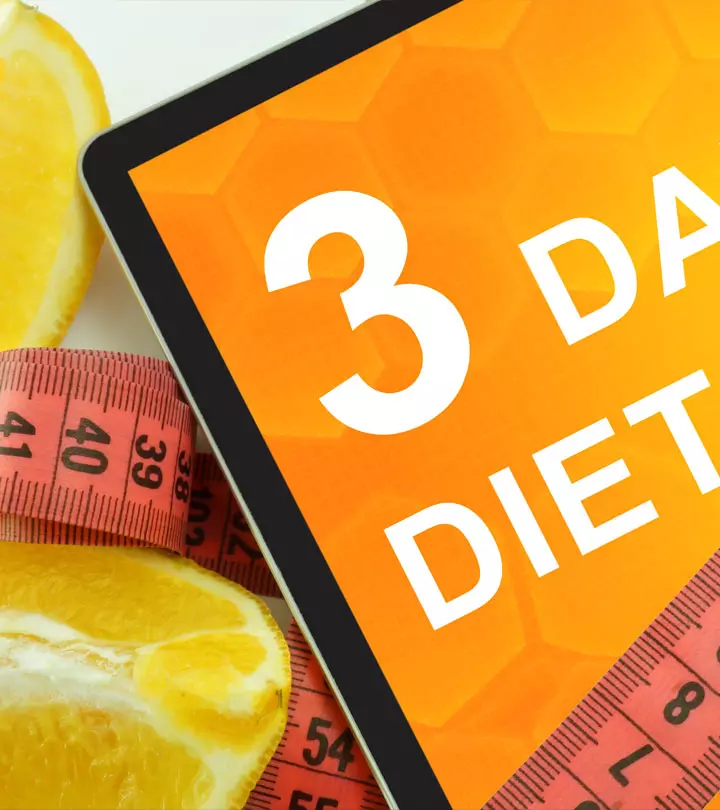




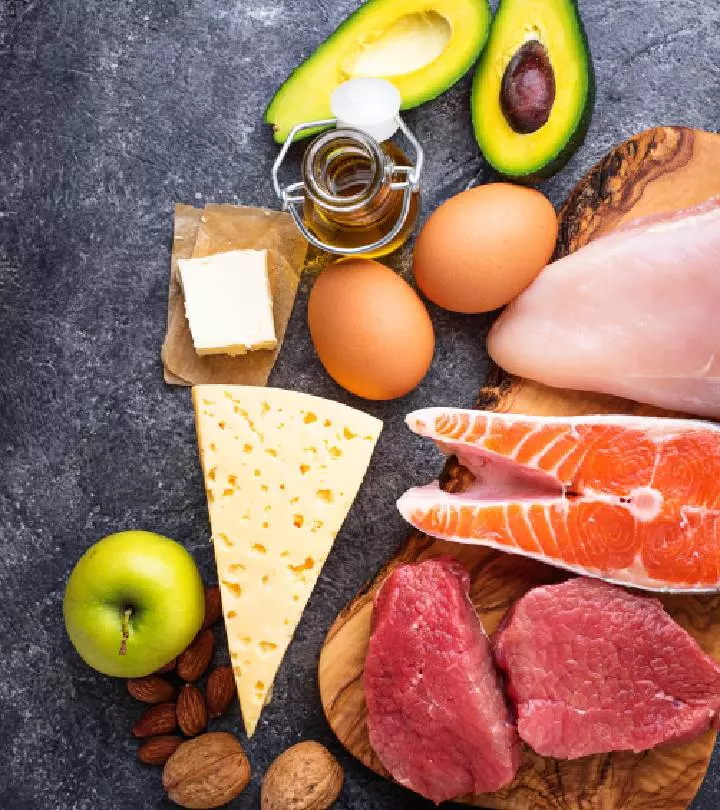
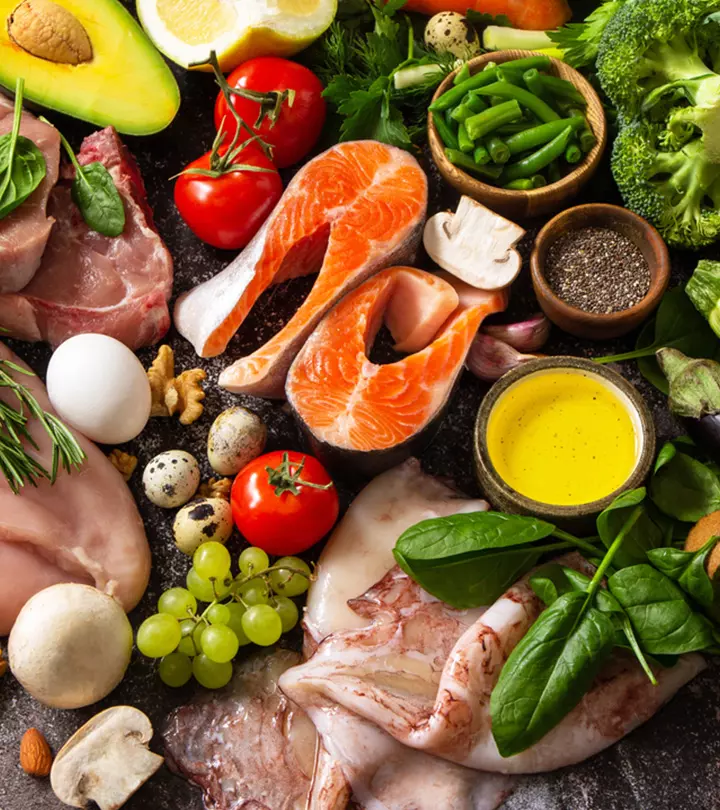

Community Experiences
Join the conversation and become a part of our empowering community! Share your stories, experiences, and insights to connect with other beauty, lifestyle, and health enthusiasts.